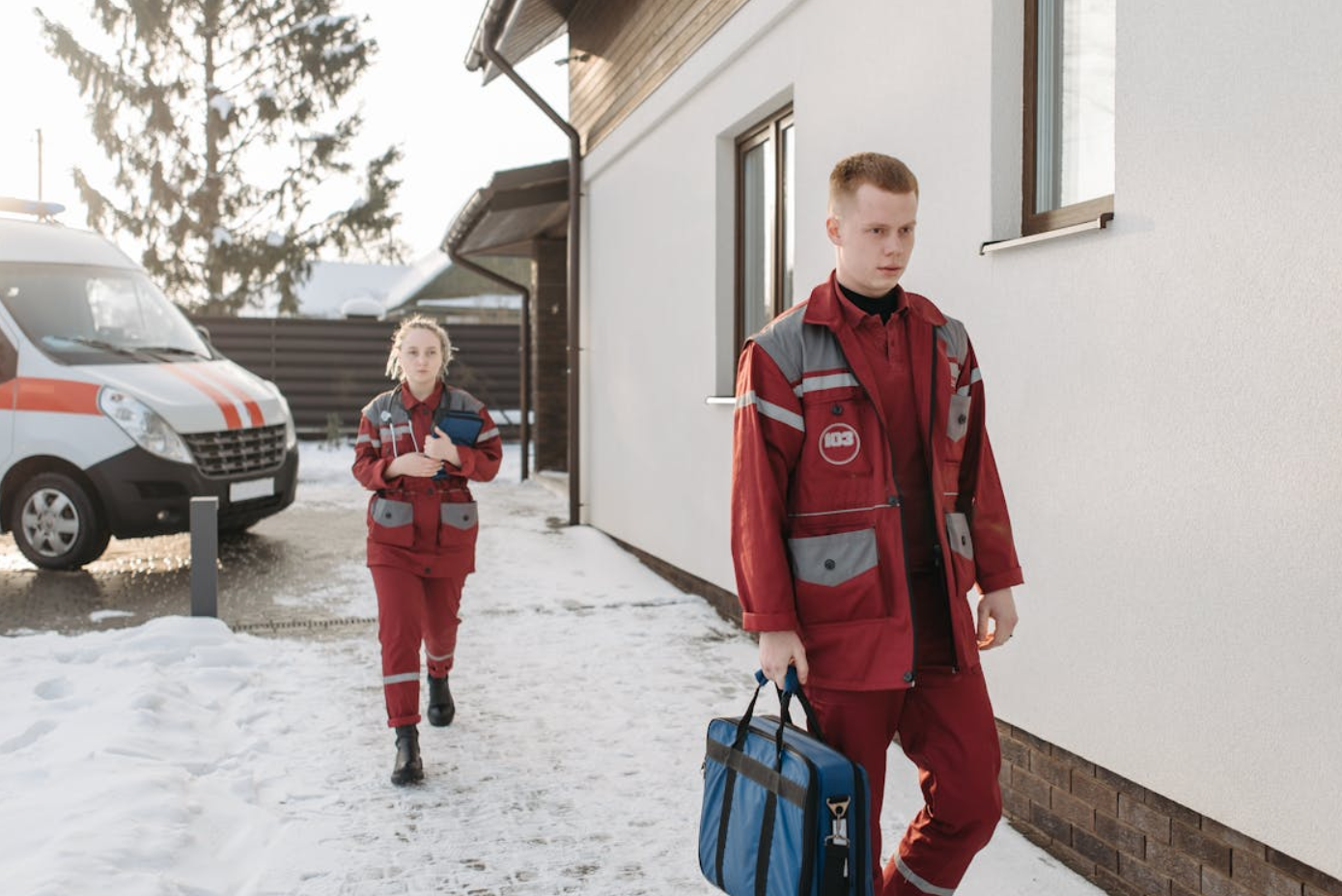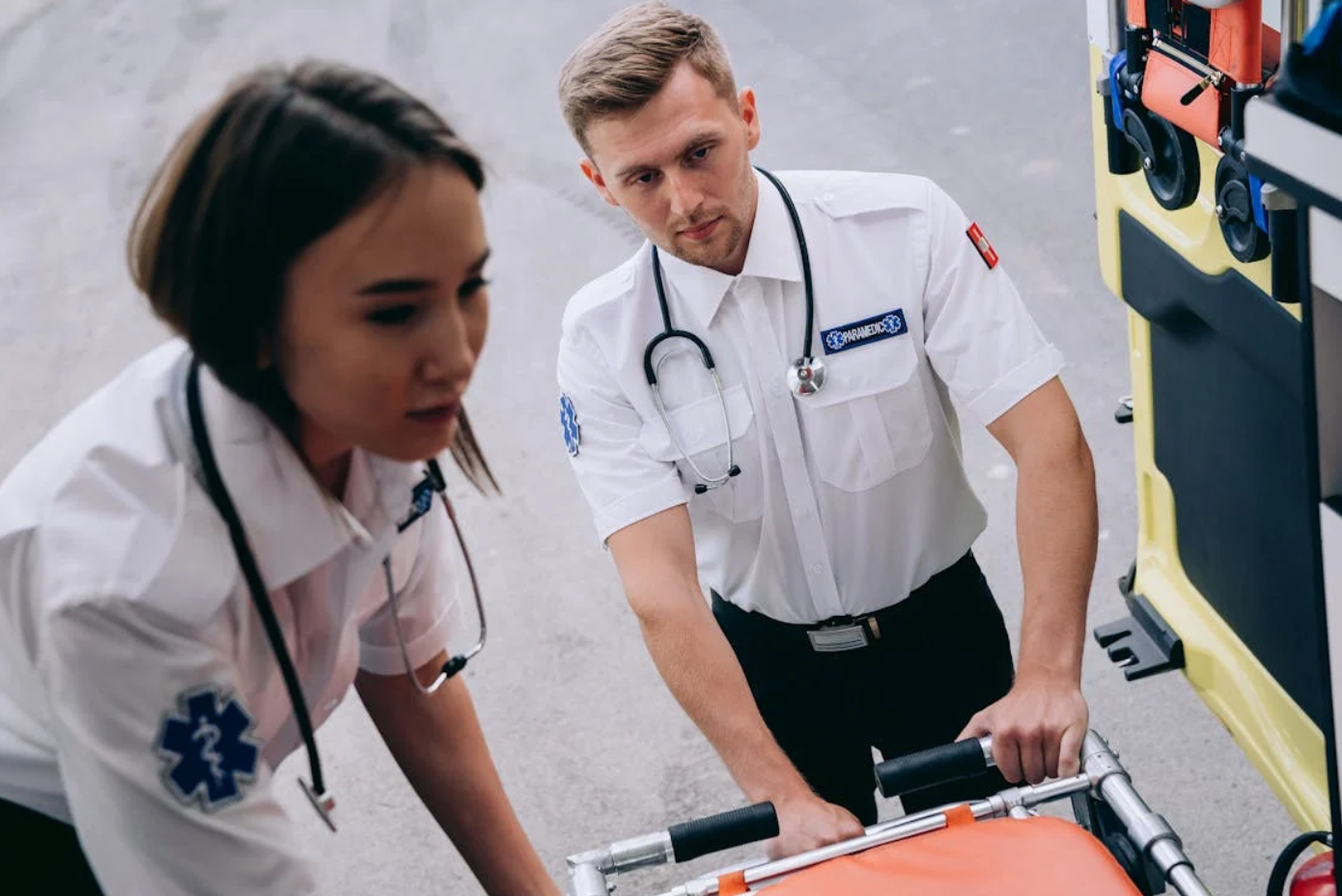Proper paramedic education cannot be understated, from hands-on practice and continued learning to shaping paramedics’ response time effectively and compassionately during emergencies.
Paramedics play an essential role in healthcare, providing indispensable assistance during emergencies and serving as one of the first medical professionals to interact with patients during crises. The work is of a very high-pressure nature, and as such, a paramedic should be duly equipped with knowledge and skills to make correct and timely lifesaving decisions.
This type of competence requires equally intensive training and education, covering not only medical expertise but also interpersonal and problem-solving skills. Only properly educated paramedics possess the necessary skills and confidence to do their job effectively.
As the profession continues to advance, so does the importance of proper education for aspiring paramedics; quality education, therefore, comes first. Read on to learn more about the importance of appropriate paramedic education.
The Significance of Comprehensive Paramedic Courses for Real-World Preparedness
Extensive paramedic courses that provide quality medical training and an understanding of emergency medicine can prepare individuals for the duties associated with this profession. Enrolling in a paramedic program equips students with essential medical knowledge needed for administering lifesaving treatments while understanding its complexities, such as airway management and trauma response techniques as well as administering emergency medications. Such programs cover every aspect of paramedic work, from basic first aid procedures to advanced techniques.
Essentially, an effective paramedic training program provides students with hands-on experience that allows them to apply their knowledge in realistic simulations and clinical environments. Practice scenarios provide future paramedics with a safe space to develop and refine their skills before entering the field, helping them become more confident, adaptable, and responsive in unpredictable circumstances. Ultimately, a reliable paramedic program serves as the cornerstone of fulfilling and impactful careers that make an immediate difference for patients.
Develop Key Skills in Crisis Management
Crisis management is central to being an effective paramedic and can often shield paramedics from malpractice instances. Proper training provides individuals with a crucial ability to handle and deflate critical, escalating scenarios. Paramedics must make quick decisions under intense pressure while remaining calm. Effective training teaches individuals to accurately assess situations, prioritize actions, and respond calmly in any circumstance, including how to identify and treat life-threatening conditions swiftly and safely.
Paramedic education equips students to work in diverse and often unpredictable environments, from remote corners of the world to dense urban centers. Courses often offer training in communication, teamwork, and leadership which is critical for working effectively alongside emergency responders in providing each patient with appropriate care. Proper education encourages paramedics to remain calm under high-stress circumstances which enables them to provide superior patient care.
The Importance of Physical and Mental Preparedness During Paramedic Training
Besides the technical skills, prominence should also be given to physical and mental preparedness during paramedic training. The work environment of a paramedic can often be physically and mentally challenging, requiring paramedics to be in good shape to undertake their responsibilities efficiently. Training programs promote physical fitness, and this may be required when carrying heavy equipment, assisting patients of different weights, and traversing difficult terrain to reach the patient in a reasonable time. Physical stamina will enable the paramedics to undertake their job with ease and safety, especially in prolonged or exhaustive operations.
Mental strength is as important, for the paramedics often face high-level stress situations and traumatic incidents. Comprehensive training programs teach students various methods for managing stress, staying focused on a call, and avoiding emotional pitfalls when responding to emergencies. By building both physical and mental resilience, the paramedics are in a better position to put up with their job demands and continue their effective and compassionate care.
Building Trust and Compassion in Patient Care
Paramedic education goes far beyond technical skills to emphasize compassionate, respectful patient care. Paramedics frequently encounter individuals at some of their most trying moments; the quality of care provided can make an immense difference to patients’ experiences. Education programs help future paramedics develop interpersonal skills necessary for communicating effectively, reassuring patients, and showing empathy even in trying circumstances.
Compassionate care is crucial in building trusting relationships between patients and providers during emergency situations where individuals may feel vulnerable or afraid. A strong emphasis is placed on understanding patients’ emotional and psychological needs in addition to physical conditions. Training paramedics on compassionate care allows them to provide additional comfort and support which often proves just as essential as the medical treatment they administer. A solid understanding of empathy and communication ensures a more successful experience for both the patient and the care provider, ultimately leading to positive results for both.

Wrapping Up: The Lasting Effect of Quality Paramedic Education
Education plays an essential part in paramedics’ effectiveness, resilience, and impact in the field. Proper training equips individuals with the necessary skills, confidence, and compassion required for lifesaving care in sometimes high-pressure situations. With rising demands on paramedics comes increasing importance on providing them with comprehensive and up-to-date education. Those entering this career must ensure quality instruction forms the cornerstone of an enriching and satisfying career dedicated to helping others.
Proper paramedic education cannot be understated, from hands-on practice and continued learning to shaping paramedics’ response time effectively and compassionately during emergencies. By investing in comprehensive education for their professional career goals, paramedics become better prepared to face its unique challenges while making meaningful differences for those they serve.


Join the conversation!